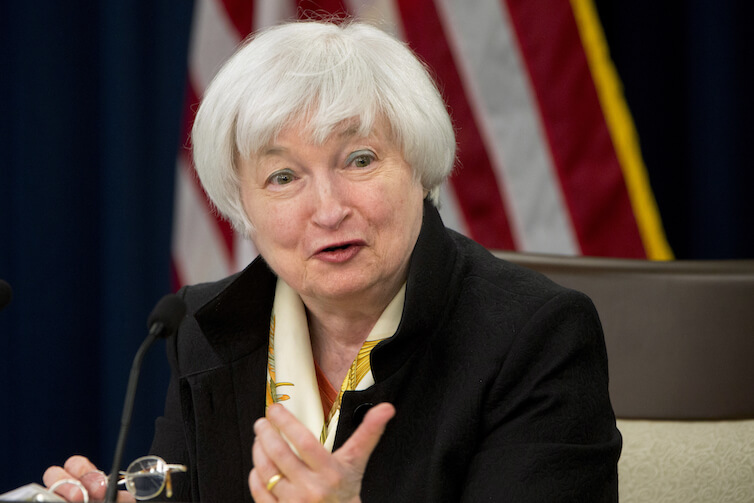How life experiences affect the views of U.S. monetary policymakers

The minutes of meetings of the Federal Open Market Committee are full of considerations of the latest economic data and deliberations about economic models. Data are parsed and the stability of current trends is considered, but something very important that informs the decisions of committee members is never explicitly discussed: their life experiences. Monetary policymakers are often thought to be purely meritocratic, making decisions that conform with an objective model of the U.S. economy. But the world and times in which they grew up shape these people—ignoring that reality is harmful to good economic policymaking.
Consider inflation. A new research paper by Ulrike Malmendier of the University of California, Berkeley, and Stefan Nagel and Zhen Yan of the University of Michigan looks at how a member of the Fed is influenced by rates of inflation over his or her lifetime. The hypothesis of the paper—that policymakers are influenced by the times they live in—makes intuitive sense and has been offered by others. If a policymaker’s career started in an era of high inflation, then he or she might be more concerned about the inflation rate than a younger policymaker. Differences in concern about inflation could result in differences in monetary policy views.
Malmendier, Nagel, and Yan look at the voting record of Federal Open Market Committee members, as well as the transcripts of meetings available after 1993. In short, they find evidence that life experience matters. Inflation over a policymaker’s life affects not only his or her voting behavior in committee meetings, but also the tone of his or her speeches. Most importantly, past inflation seems to influence a policymaker’s view of future inflation. People who experience higher inflation tend to project higher inflation than Federal Reserve staff projections, and those who experience less inflation have lower projections.
It stands to reason that the life experiences of policymakers also influence their views of other future developments in the economy. Views on the other half of the Federal Reserve’s dual mandate—ensuring full employment in the economy—are probably influenced by policymakers’ experiences as well. But not only does the unemployment rate vary over time, it also varies by race and ethnicity. The unemployment rate for black Americans is consistently around two times the unemployment rate for white Americans. If experiences of inflation can have a lifelong impact, then being part of a group that has structurally higher unemployment rates seems very likely to have an influence on a policymaker’s view of unemployment.
In the past, the Federal Open Market Committee hasn’t paid much attention to the racial and ethnic differences in unemployment. Former Minneapolis Federal Reserve President Naryana Kocherlakota notes that throughout 2010, the inequality in unemployment wasn’t noted once during the committee’s meetings that year. Perhaps that lack of attention shouldn’t be surprising given the composition of the committee.
Running an analysis for racial differences on unemployment for Fed voters would be interesting, but we lack enough data. In the more than 100-year history of the Federal Reserve system, there have only been three African American members of the committee. Raphael Bostic will soon be the fourth member—and the first black Federal Reserve Bank president—when he becomes the president of the Federal Reserve Bank of Atlanta in June. The appointment came after the lack of diversity of the Federal Reserve was highlighted by members of Congress and the Fed Up coalition.
Life experience isn’t the sole determinant of policy decisions, but it’s an important component of the process. For an organization that has significant power over the U.S. economy, a lack of diversity at the Federal Reserve results in policy that can alter the lives of millions of Americans.
